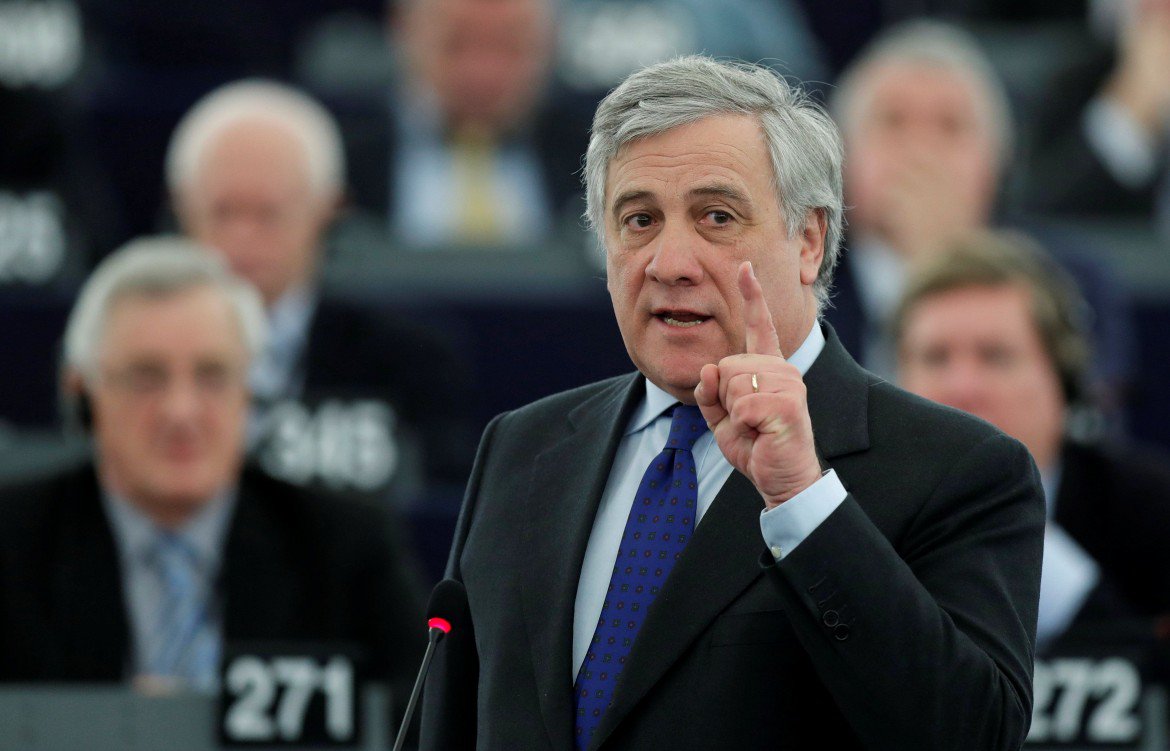Analysis
Far right is pleased with the new European Parliament president
The People’s Party candidate won after four rounds of voting, installing a conservative president to the right of those in his group.

It took four rounds to elect the new president, the maximum allowed by European Parliament rules. It came down to a final battle between Italians. The new president will be Antonio Tajani, of the People’s Party, who was elected by a wide margin, with 351 votes against 282 for Gianni Pittella, of the Socialists and Democrats.
It is the first time since 1979 that it took so long to reach the final result. In the past, there had always been a prior agreement among the main groups. Since 2014, the European Parliament has changed, with the mass arrival in power of eurosceptic representatives of the extreme right.
Even in the third round, Tajani was leading with 291 votes, followed closely by Pittella (199). The other aspirants did not quit until the third round: the Belgian Helga Stevens of the conservative ECR, the British Jean Lambert of the Green Party, Eleonora Forenza of the GUE (who earned three votes between the second and third round) and the Romanian Laurentiu Rebega, of the far-right coalition (National Front, Northern League).
The Liberal Guy Verhofstadt withdrew Tuesday morning, paving the way for Tajani. The Belgian representative, who represents the parliament in negotiations for Brexit, had dreamed of the presidency, but he clipped his wings himself with the mess of the attempted agreement with 5 Star Movement, which shipwrecked before its conclusion. In the ALDE, which has 68 MEPs, many did not forgive Verhofstadt for this maneuver. In addition, Verhofstadt was already guilty of putting a spoke in the wheel to the candidacy of another liberal representative, the French Sylvie Goulard (centrist), a very prepared and pro-European representative who could have taken on the succession of Martin Schulz.
The latter, during his five years in office, has transformed the role of president, which was much more nuanced in the past. ALDE’s reticence to support Tajani’s application and the continued candidacy of the far-right candidates Stevens and Rebega delayed the election. The Italian was forced to undergo the gauntlet of the whole series of votes required, until the fourth and last ballot, where the regulation allows only the two candidates with the highest number of votes to participate. It was a way for the extreme right to weaken the next president of the European Parliament, even though the final choice went in their favor.
Verhofstadt hypocritically justified his support for Tajani in the name of “building a pro-European coalition to reform and strengthen the E.U.” But Tajani’s election is disputed. Not only by the Greens, but also by many MEPs who accuse him of ignoring the information he had access to in 2012, when he was Commissioner for Industry (2010-2014). Tajani knew about the fraudulent activity in the pollution controls for gas emissions in diesel cars. The left criticizes Tajani for his ultra-conservative views on society: In 1996, for example, he sent a written question to the European Council, which stated that the children of same-sex couples “have serious psychological problems.”
Tajani is reprimanded in the European Parliament for his vote against the development of renewable energies. Cécile Kyenge is worried for his “lack of vision” toward Africa: “He sees these countries only as a source of problems and resources rather than as partners” for the E.U. Tajani also voted “no” on a proposal to ensure a shared protection strategy for whistleblowers in the E.U. after the Panama Papers scandal.
In other words, the European Parliament chose a clearly conservative president, sometimes even to the right of the average of the People’s Party. The extreme right, with more than a 100 representatives since 2014, is not displeased with the result. Thus, the European Parliament is likely to return to the gray anonymity of the years before the Schulz presidency.
Originally published at http://ilmanifesto.info/europarlamento-il-presidente-e-tajani/ on 2017-01-18
